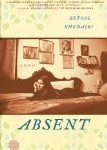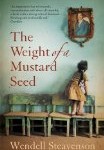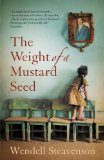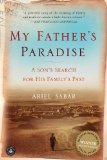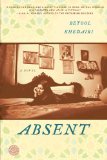 Translated from the Arabic by Muhayman Jamil
Translated from the Arabic by Muhayman Jamil
Five words from the blurb: Baghdad, apartment, bombings, arrests, honey
Absent is set in a crowded Baghdad apartment building and follows the lives of the residents as they endure bombings, arrests and the international sanctions of the 1990s. The central character is Dalal, a young woman who was abandoned at birth. Living with her aunt and uncle the three manage to avoid the worst of the poverty by taking up beekeeping. This book does a fantastic job of explaining the difficulties faced by Iraqi citizens, as well as providing a fascinating insight into the problems of setting up a honey production business.
I join her at the window to share her amazement. The smoke from the bombing over the past few weeks has combined with the rain from last night, painting bars of loathsome solution everywhere. The local weather forecasters failed to predict the sudden downpour. Its smell is like a mixture of burnt engine oil and the stench of a rat that had died a while ago.
The book begins with a series of short passages, each describing a different unrelated scene. It was a bit like reading several short stories that happened to be set in the same place and I struggled to connect with it. It took about 40 pages for everything to become clear and for me to begin to bond with the characters, but once I’d managed to fit the pieces of the jigsaw together I was hooked.
I never formed an emotional connection to the characters, but I was intrigued by their lives; curious as to what would happen to them all. The writing/translation was of a very high standard and I loved the way that gentle humor was sprinkled throughout the text to lighten the mood.
My edition of the book also contains a short postscript, explaining the author’s motivations for writing the book. This added an extra dimension to the text and made me feel especially lucky to live in such a safe country.
This can never be described as an enjoyable book, but it is an important one. Recommended to anyone who wants a greater understanding of what the ordinary citizens of Baghdad had to endure at the end of the 20th century.

.
How did I hear about this fantastic little book? Come back tomorrow and I’ll explain all!
